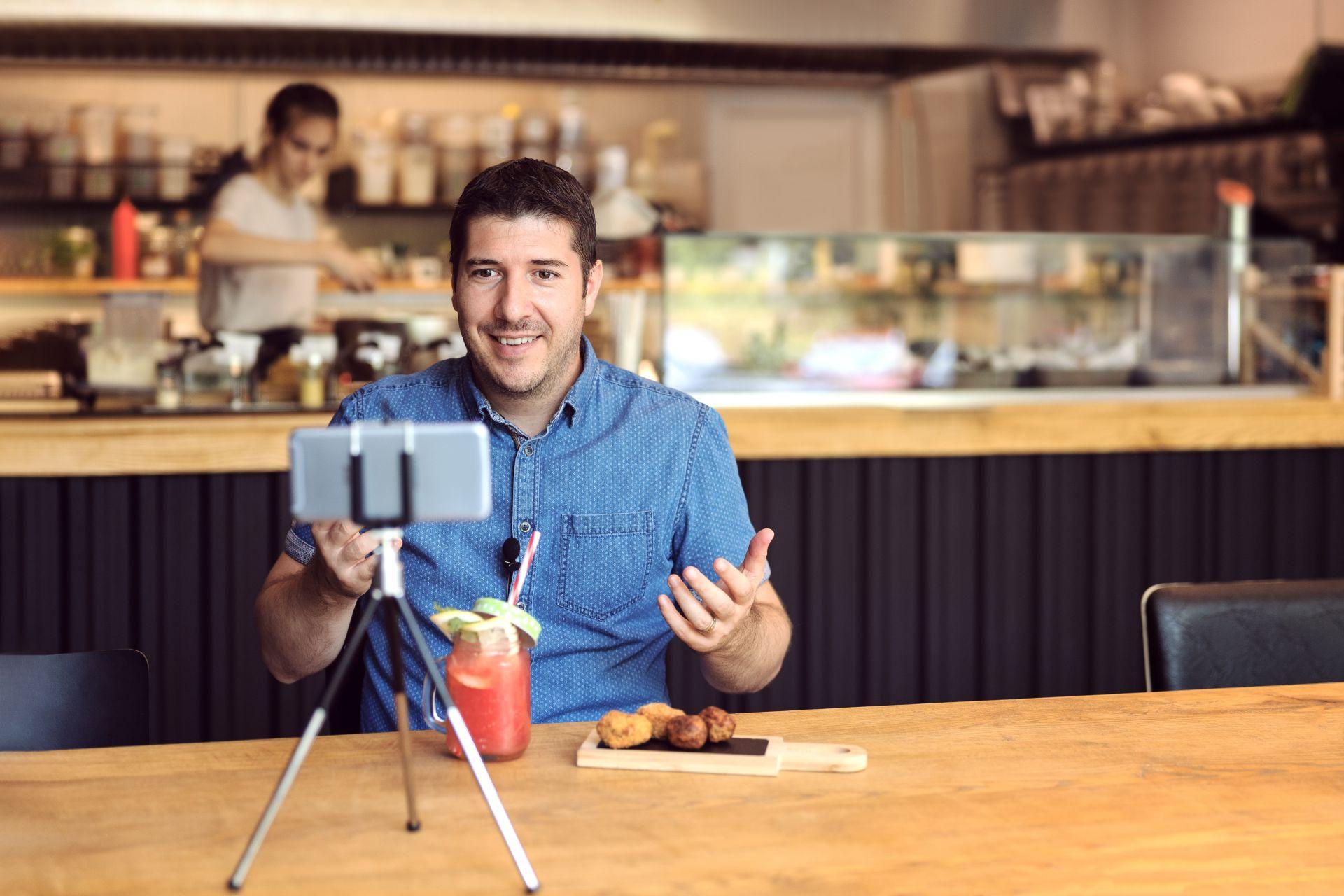The Rise of the Digital Creator Economy
In recent years, a completely new professional world has emerged alongside traditional labor markets: the digital creator economy. Platforms that were originally designed for self-expression or entertainment have evolved into billion-dollar ecosystems employing entire networks of freelancers, managers, and content specialists.
What once started as a side hustle has become a serious economic force. More and more people use digital platforms to interact directly with their audience and generate income. As a result, new professional roles have appeared – from community managers and account strategists to consultants who specialize in optimizing personal brands.
This hidden job ecosystem offers both opportunities and challenges. It is characterized by self-employment, digital marketing, and entrepreneurial thinking. To succeed here, you need not only creativity but also a deep understanding of how this platform economy works – how applications are handled, which skills are in demand, and where the biggest growth areas can be found.
In this article, we take a closer look at the new career opportunities within the creator economy, analyze the mechanisms behind these emerging jobs, and explore how digital platforms like OnlyFans are transforming into legitimate career platforms for modern professionals.

What Is the Creator Economy – and Why Are New Jobs Emerging?
The so-called Creator Economy refers to the economic sector in which individuals create, market, and directly monetize content through digital platforms. Unlike traditional companies, they do not sell physical products but rather attention, expertise, or exclusive access. Over the past five years, this model has developed tremendous momentum – creating a new job market that is often overlooked.
According to a 2024 study by Influencer Marketing Hub, the global creator economy already includes over 250 million active participants, ranging from micro-influencers to agencies specializing in managing such accounts. The annual market volume is expected to exceed 250 billion USD by 2027. These figures show that what began as a niche phenomenon has now become a significant economic sector.
However, with growth came new roles: in addition to the creators themselves, there are now community managers, chat operators, marketing strategists, video editors, consultants, and virtual assistants. Many of these activities are location-independent and based on project work or remote collaboration.
What makes this development particularly interesting is that digital platforms not only enable self-marketing but also create jobs within the system itself. Successful content creators hire external teams to handle communication, customer engagement, and marketing, while the platforms themselves recruit qualified staff to manage operations, support, and data analysis related to creator activities.
This evolution makes one thing clear: the creator economy is more than just a trend. It is fundamentally changing how people work, earn, and define their careers. The hidden job market of the digital creative industry continues to grow – offering opportunities to those who recognize early on which skills and competencies are in demand.

How to Enter the Platform Economy as a Content Creator
At first glance, entering the digital creator economy seems simple: create a profile, publish content, build an audience. But anyone who wants to use this world as a professional source of income should treat the process like applying for a new market segment. Each platform has its own rules, technical requirements, and target audiences – and those who aim for long-term success need a clear concept, a strategy, and an entrepreneurial mindset.
From Profile to Brand
Before publishing the first piece of content, positioning is key. Successful creators treat their profiles like businesses:
- They define a clear target audience and its needs.
- They develop a visual and linguistic brand concept that builds recognition.
- They plan their content like a marketing campaign – with topics, publishing rhythm, and long-term goals.
Professional platforms require identity verification, usually through a valid ID, age confirmation, and sometimes tax information. This provides legal security and reflects the professional standards expected in this market.
Skills in Demand Today
In the creator economy, creativity alone is no longer enough. Successful applicants combine creative talent with business thinking. Key skills include:
- Marketing insight: How to position yourself in a competitive environment?
- Analytical ability: How to interpret data on reach, engagement, and audience behavior?
- Customer orientation: How to build long-term loyalty through real value?
- Technical knowledge: Working with cameras, editing software, analytics tools, and platform algorithms.
This blend of creativity and business acumen is why many creators are now viewed as digital entrepreneurs. They develop products, set prices, run campaigns, and manage their own communities – just like traditional companies, only in a digital environment.
Strategic Preparation and First Steps
The application process for joining a platform is similar to launching a business:
- Analyze the platform: who is successful there and why?
- Develop a strategy: what kind of content will be offered, in which format, and at what price?
- Create a business plan: what investments (technology, time, promotion) are necessary?
- Plan long-term: which milestones should be reached in the first six months?
Good preparation pays off. According to the HubSpot Creator Report 2024, creators with a clear strategy achieve on average 47% higher earnings than spontaneous users.

Professionalization and Growth
Once the first successes are visible, the real work begins: optimization, scaling, and network building. Many creators join agencies or management firms that take care of communication, customer service, or advertising. This allows them to focus more effectively on their core product – their content.
Entering the creator economy is therefore not a spontaneous decision but a conscious career move. Those who enter this market professionally can build a stable, independent career – outside of traditional corporate structures, but with the same demands for planning, quality, and accountability.
New Job Roles Emerging Around Digital Platforms
The creator economy has not only created new income opportunities but also a wide range of professional roles that have developed around these platforms. While some people produce content themselves, others find their place behind the scenes – as specialists who manage processes, optimize communication, and drive growth.
Digital Assistants and Community Managers
One of the most in-demand areas involves virtual assistants and community managers who support creators in their daily operations. They handle tasks such as message management, customer communication, scheduling content, and analyzing engagement data.
What used to be handled by marketing departments is now managed remotely and flexibly by freelancers. Many of these positions are project-based, often evolving into long-term collaborations when trust and professionalism are established.
Chat Operators and Communication Specialists
A relatively new but rapidly growing professional group consists of chat operators. They maintain direct communication with followers or subscribers, nurture personal connections, and strengthen customer loyalty. Discretion, communication skills, and emotional intelligence are essential in this role.
According to the job platform Remote Africa, such positions are now advertised worldwide, typically remote and with flexible working hours. Salaries vary depending on the platform, experience, and performance bonuses but generally range between 2,000 and 4,000 USD per month.
For anyone interested in an onlyfans job application, the Bunny Agency offers an excellent opportunity to start a remote career as an OnlyFans chatter. The agency provides structured training, manager support, and genuine career development for communicative and empathetic applicants focused on fan engagement and community management.
Content Strategists, Managers, and Consultants
As the creator economy becomes increasingly professionalized, an entire layer of management has emerged. Content strategists analyze audiences, plan publication schedules, and develop brand positioning.
Account managers coordinate teams of graphic designers, video producers, and marketing experts, while consultants focus on legal, financial, or communication-related issues.
These roles are particularly suitable for individuals with backgrounds in marketing, communication, or business management who wish to apply their expertise in the digital space.
Agencies as New Employers
Around successful platforms, specialized agencies have formed that manage entire creator portfolios. These agencies offer positions in project management, social media marketing, data analysis, and customer service.
Some actively hire employees to handle communication and community engagement on behalf of their clients. This has led to formal employment structures in an environment originally built on self-employment – a remarkable shift that highlights how strongly this market is becoming professionalized.
The variety of these emerging roles demonstrates that the creator economy offers tremendous opportunities not only for independent creators but also for employees. It combines flexibility with economic significance and opens entirely new career paths that were virtually unknown just a few years ago.
Business and Profitability: Income, Costs, and Risks
The creator economy is often associated with quick success and high earnings. However, as with any business model, behind the headlines lie hard work, investment, and a clear strategy. Anyone aiming to succeed in this market must understand the financial reality — both for content creators and for those working in supporting roles.
Income Models and Revenue Streams
The income structure of digital platforms is based on direct monetization: subscriptions, donations, custom orders, commissions, or pay-per-view models. In most cases, the platform retains a fee — typically between 10% and 30% of total revenue.
Successful creators diversify their income streams across multiple channels by selling products, offering consultations, or leveraging affiliate marketing.
According to estimates by Business Insider (2024), around 15% of active creators earn more than 5,000 USD per month, while the majority make between 500 and 2,000 USD. This range illustrates how success depends heavily on strategy, niche selection, and brand development.
Supporting professionals also benefit: agencies and communication managers earn an average of 3,000 to 6,000 USD per month, depending on experience and responsibility. Specialists in data analytics, marketing automation, and community building are particularly sought after.
Investments and Ongoing Costs
Like any business, working in the creator economy requires investment in equipment, education, and marketing. Typical expenses include:
- Technical equipment: camera, microphone, lighting, software.
- Marketing: advertising, platform fees, social media campaigns.
- Services: support from editors, designers, writers, or managers.
Many start with minimal budgets, but consistent investment in quality and reach is essential for growth. Studies show that creators who reinvest at least 15% of their revenue into marketing achieve more stable long-term income.
Risks and Legal Challenges
As appealing as this business model is, it also comes with significant risks:
- Legal obligations: income must be properly taxed, and in many countries, creators are classified as self-employed.
- Reputation and privacy: public exposure can have long-term consequences, especially for creators producing content in sensitive niches.
- Platform dependency: algorithm updates or policy changes can suddenly affect visibility and earnings.
To mitigate these risks, successful creators focus on diversification — using multiple platforms, building email lists, and developing their own branded products.
Conclusion of This Section
The creator economy can be highly profitable, but it requires a professional business mindset and sound financial management. Those who view it as a long-term career opportunity should approach it like running a company — with clear budgeting, strategic planning, and effective risk management.
Strategies for Sustainable Success in the Digital Creator Economy
Building a successful career in the creator economy is no coincidence. It results from strategy, persistence, and business-minded thinking. Those who treat this field as a serious source of income must understand that it operates under the same principles as any other business: planning, positioning, and continuous optimization.
1. Brand Building as the Key to Differentiation
In the digital space, your personal brand is your most valuable asset. Creators who position themselves clearly build trust and recognition — two essential factors for long-term income.
A professional brand identity includes:
- A consistent visual appearance (logo, colors, and style).
- A distinctive tone of voice and communication style.
- A strong unique selling proposition — a clear answer to the question: why should someone follow or work with me?
Entrepreneurially successful creators treat their brand as a product. They analyze market trends, respond to demand, and continuously develop their offerings.
2. Strategic Content Management
Sustainable success comes from planned and data-driven content strategies. This means:
- Content is planned in advance and tailored to specific target audiences.
- Analytics on reach, engagement, and conversion rates determine what works best.
- Each publication serves a measurable goal — growth, customer retention, or revenue generation.
Platforms reward consistency and quality. According to the HubSpot Creator Report 2024, creators who work systematically achieve up to 60% higher engagement rates than spontaneous users.
3. Professional Networking and Collaboration
In the digital business world, reputation and relationships matter just as much as reach. Collaborations with other creators, brands, or agencies can significantly boost visibility and credibility.
Strategic partnerships that align with one’s brand create synergy rather than competition. Working with specialized management agencies can also help handle contracts, communication, and marketing at a professional level.
4. Financial Planning and Diversification
Long-term success depends on a solid financial foundation. Successful creators:
- Separate personal and business finances.
- Reinvest part of their income into education, equipment, and marketing.
- Expand their business models through consulting, courses, or digital products.
This diversification provides stability when platforms change their policies or trends shift unexpectedly.
5. Ethics, Safety, and Sustainability
An often-overlooked aspect of the creator economy is ethical responsibility. Transparency, data protection, and respectful interaction with one’s community strengthen trust — a key driver of lasting success.
Mental health is also becoming increasingly important: constant visibility and performance pressure demand clear boundaries between work and private life. Those who prioritize this early on ensure long-term stability and productivity.
The creator economy has become a fully established economic sector. Those who enter it with professionalism, clear goals, and sustainable strategies can not only generate income but build their own independent, scalable, and global digital business.
Conclusion: A New Job Market with Entrepreneurial Potential
The digital creator economy has created a new kind of working world — one that combines flexibility, independence, and entrepreneurial thinking. What once started as a niche phenomenon has evolved into a global economic sector employing millions of people.
Platforms that allow individuals to monetize their content directly not only create new income models but also drive growing demand for skilled professionals working behind the scenes. Communication specialists, strategists, data analysts, and marketing experts are now just as sought after as the creators themselves.
This fusion of creativity and business expertise is fundamentally transforming the structure of the digital labor market.
As in any economic field, success depends on planning, discipline, and strategic thinking. Those who prepare their entry professionally, understand the mechanics of digital platforms, and treat their work as a business can secure stable income and long-term career prospects.
The creator economy is not a short-lived trend but a reflection of the modern world of work — decentralized, technology-driven, and full of opportunity. For entrepreneurs, freelancers, and ambitious self-starters, it offers a landscape that blends creativity with financial success — provided it is approached with the professionalism and seriousness it deserves.
Frequently Asked Questions (FAQs) about the Creator Economy and OnlyFans Job Applications
1. What is the creator economy?
The creator economy refers to the digital ecosystem where individuals build audiences, create content, and monetize their skills or personality through platforms like OnlyFans, YouTube, or Patreon. It includes not only creators themselves but also managers, editors, and communication specialists who support them.
2. What does an OnlyFans job application involve?
An onlyfans job application typically involves applying for remote roles such as chat operators, community managers, or content strategists. Applicants must demonstrate communication skills, empathy, and reliability. Agencies like Bunny Agency provide structured training and career growth opportunities for new professionals in this field.
3. Do I need experience to start working in the creator economy?
Not necessarily. While experience helps, many roles offer onboarding and training programs. What’s more important are strong communication skills, self-motivation, and a willingness to learn digital tools and marketing basics.
4. Is working as an OnlyFans chatter safe and legitimate?
Yes, when done through reputable agencies or verified creators. Legitimate companies provide contracts, training, and compliance guidelines to ensure data protection and respectful communication. Always research the agency before applying.
5. How much can I earn as an OnlyFans chatter or creator?
Earnings vary widely depending on experience, activity level, and engagement rates. According to industry data, many remote chat operators earn between 2,000 and 4,000 USD per month, while top creators can earn significantly more through subscriptions and premium content.
6. What skills are most valuable in the creator economy?
Valuable skills include marketing knowledge, data analysis, audience engagement, and social media management. Technical proficiency with editing tools, creativity, and empathy are also key to long-term success.
7. Can I work remotely in this field?
Absolutely. Most jobs in the creator economy are fully remote, offering flexibility and the opportunity to work from anywhere with a stable internet connection.
8. How can I make my application stand out?
Highlight your communication skills, reliability, and understanding of online communities. A professional, detailed, and honest onlyfans job application shows that you take the opportunity seriously and understand the digital workspace.
Bildnachweis:
rh2010 – stock.adobe.com
Ivan – stock.adobe.com
DanRentea – stock.adobe.com
frimufilms – stock.adobe.com
